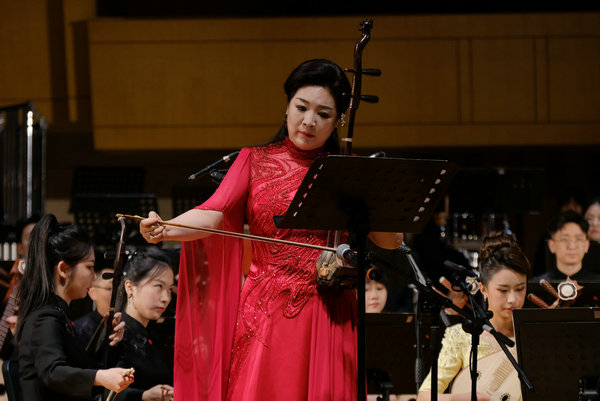Concerts lifting cultural tourism


For 32-year-old Li Xiyue, this past summer was destined to be unforgettable. "Seeing the idol I've loved for more than 10 years right in front of me, with those familiar melodies filling the air, it felt like my youth had returned," she said, her voice trembling with excitement.
Li had traveled hundreds of miles to Shenyang in Liaoning province specifically for Chinese singer David Tao's performance. What made her pilgrimage even more memorable was the heartwarming welcome she received from the local people. "The moment I stepped off the plane, I was handed a big bag of gifts prepared for fans, including drinks, a travel guide and even local specialties."
Shenyang, capital of Liaoning, plans to host 30 large-scale concerts in 2025 — more than in any previous year, with some 750,000 fans expected to attend.
As concert fever continues to sweep across China, such musical gatherings are generating ripple effects far beyond ticket sales.
For example, in Nanning, South China's Guangxi Zhuang autonomous region, singer Jay Chou's concerts attracted over 140,000 attendees in the course of three days. The events generated roughly 1.2 billion yuan ($168.3 million) in local spending, with more than 85 percent of this contributed by visitors from outside the city, underlining why music fans are increasingly viewed as "walking GDP."
Concerts, as highly attractive cultural activities, have emerged as powerful catalysts for the cultural tourism industry, said Fu Yifu, a researcher at Jiangsu Su Merchants Bank.
In addition to ticket revenues, concerts generate consumption across sectors — including accommodation, dining, transport, tourism, shopping and entertainment, Fu added.
According to the China Association of Performing Arts, every yuan spent on a ticket generates an additional 4.8 yuan in related local spending.
Recognizing the economic boost generated by concerts, policymakers are taking steps to further support the sector. In March 2025, the Ministry of Commerce pledged to help certain cities transform into international consumption centers by backing more high-level international sports events and performance shows.
Local governments are also racing to capture the momentum, treating concert calendars as opportunities to showcase their cities. Approval processes for performances have been streamlined and incentives are being rolled out to attract top artists and compete for fans.
Shenyang, for example, allows concertgoers with ticket stubs to use ride-hailing services at a 40 percent discount or to enter major scenic spots at half price. The city of Haikou in South China's Hainan province, meanwhile, has leveraged its visa-free entry policy to lure overseas performers and fans — while offering rewards of up to several million yuan for organizers who bring in large-scale concerts and music festivals.
Xinhua - China Daily




































